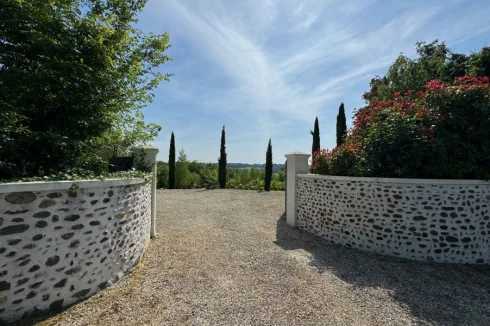Over €400K in Costs for Illegal Building Works
Wednesday 03 June 2020
A British national who carried out unauthorised building works to their French property has been obliged to demolish much of the work, writes Arthur Cutler.
Despite the perception that may sometimes be given from television programmes, property owners in France are subject to a planning regime that is as tight as that which exists in the UK and many other countries.
Major projects (extension, conversion, etc) self-evidently need permission, but minor changes may also need a building permit.
I regularly come across cases where expatriates have carried out work to their property, oblivious of the need to obtain consent, or where they have tried to dodge the need for consent to be obtained.
Although the authorities are often slow in taking enforcement action, when they do so the consequences for the property owner can be devastating.
In a case in which I was recently involved, the owner of a large property applied for planning consent for a variety of extensions to existing buildings, plus several new constructions (barns, storage, pool, etc).
Some of the initial applications were approved, but others were refused. The works went ahead regardless of the lack of full consent.
Some additional works were also carried out for which no applications were submitted.
Some years later, the illegal works were discovered, and the owner faced a police investigation and a subsequent court hearing.
The investigation found that a high proportion of the building works had been carried out by illegal labour, giving rise to criminal proceedings.
The court found the owner guilty of unauthorised construction works and ordered a large fine.
Planning regulations ruled out retrospective permission for some of the constructions (because the property was not within a area zoned for construction), and most had to be demolished.
Fines, legal costs, and back-taxes came to over €400,000, but the final cost of the episode resulted in a total financial loss to the owner of the property of several million euros due to demolition costs and a loss in the value of the property.
The issue can also be a problem when an owner comes to sell the property, and the necessary consents for the changes they have undertaken are not in place.
In some cases, the lack of permission can be rectified easily enough, with a retrospective consent, provided current planning regulations allow it.
However, that is not always the case and under those circumstances planning authorities can demand that the property be put back in its original state, meaning any work carried out without a permit may have to be undone.
When a potential buyer of a house discovers the absence of a planning permit during the purchase process, understandably they will want to ensure a permit exists before completing the purchase.
It is usual for a conditional clause to be included in the sale and purchase contract, to the effect that retrospective permission is granted within a specified time-frame. Inevitably, this will result in a delay in the sale of the property.
Many people are under the misapprehension that all manner of works can be undertaken without a permit. This is not so and works needing consent, whether planning permission or a works declaration, include:
• Any external change of appearance to a property – this includes changing the style or material of doors and windows. It also includes in some cases, changing the colour of shutters, masonry, etc.• The installation of Velux windows or dormers, creating new door or window openings, or indeed changing a door to a window or vice versa.
• Any increase in the habitable or taxable floor area of a property. This includes converting a lean-to, attic, stable, garage or barn into living space. It is important to recognise that the definition of habitable space is very wide in France.
• Any swimming pool - whether in-ground or above-ground - with a surface area of more than 10 m²
• Building a garden shed or poly-tunnel, and there will be taxes to pay as well. In some cases, local planning regulations specifically forbid sheds and poly-tunnels.
Internal modifications that do not create additional living space may be exempt from the need for a permit.
However, caution is required where projects like attic conversions are concerned because special rules can apply.
If in doubt, please do not hesitate to ask for professional advice.
Arthur Cutler, Director
French Plans
Thank you for showing an interest in our News section.
Our News section is no longer being published although our catalogue of articles remains in place.
If you found our News useful, please have a look at France Insider, our subscription based News service with in-depth analysis, or our authoritative Guides to France.
If you require advice and assistance with the purchase of French property and moving to France, then take a look at the France Insider Property Clinic.





